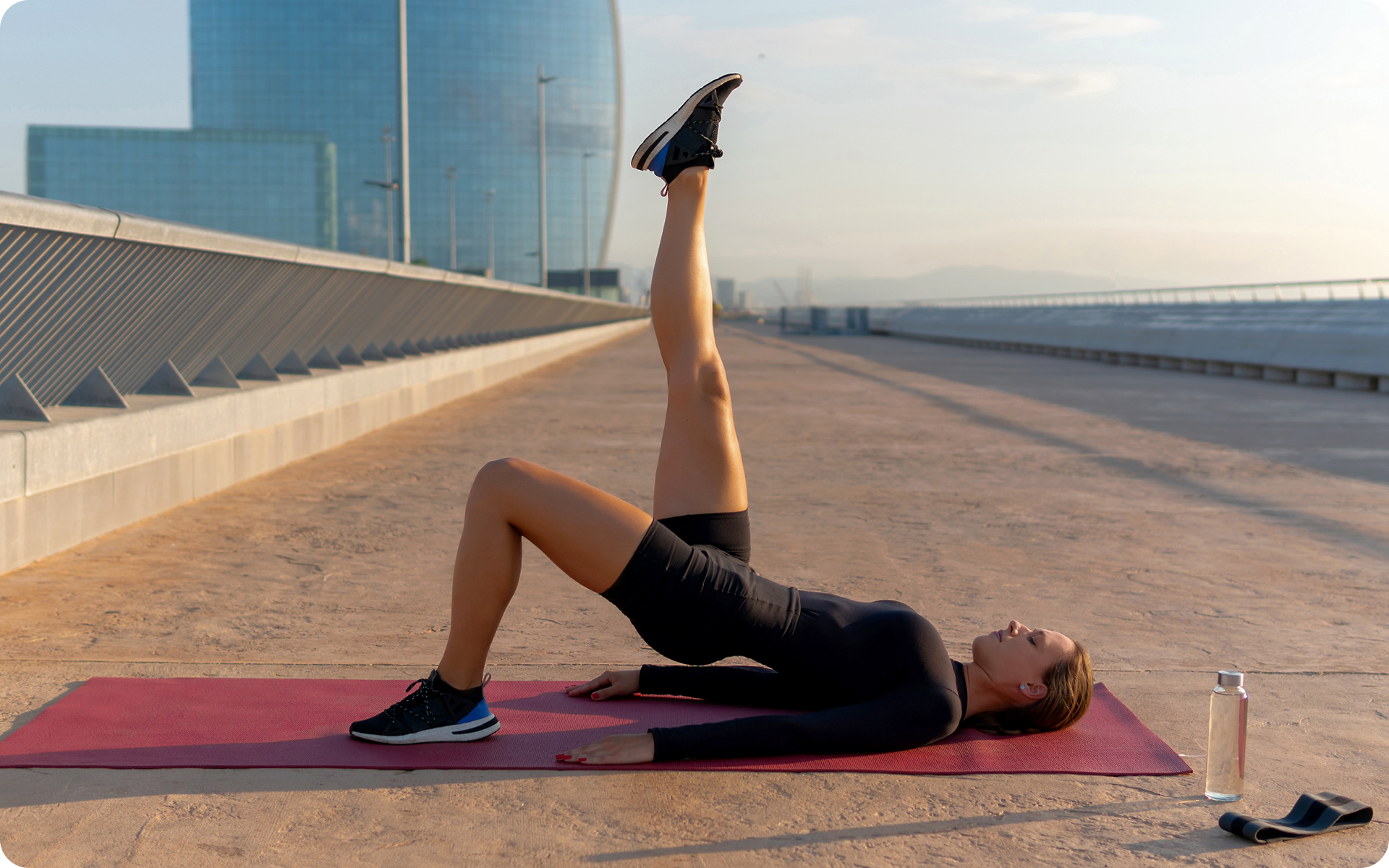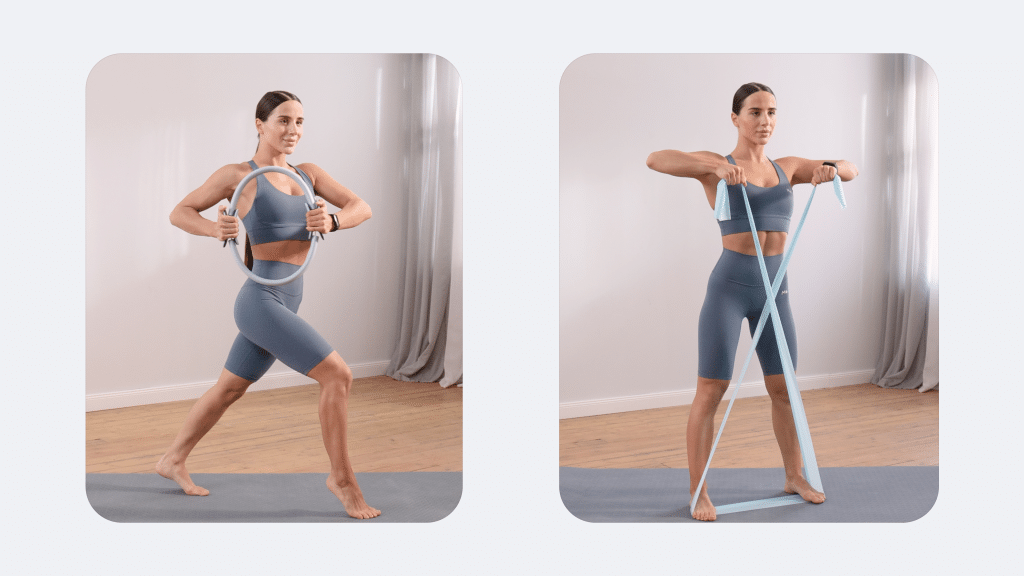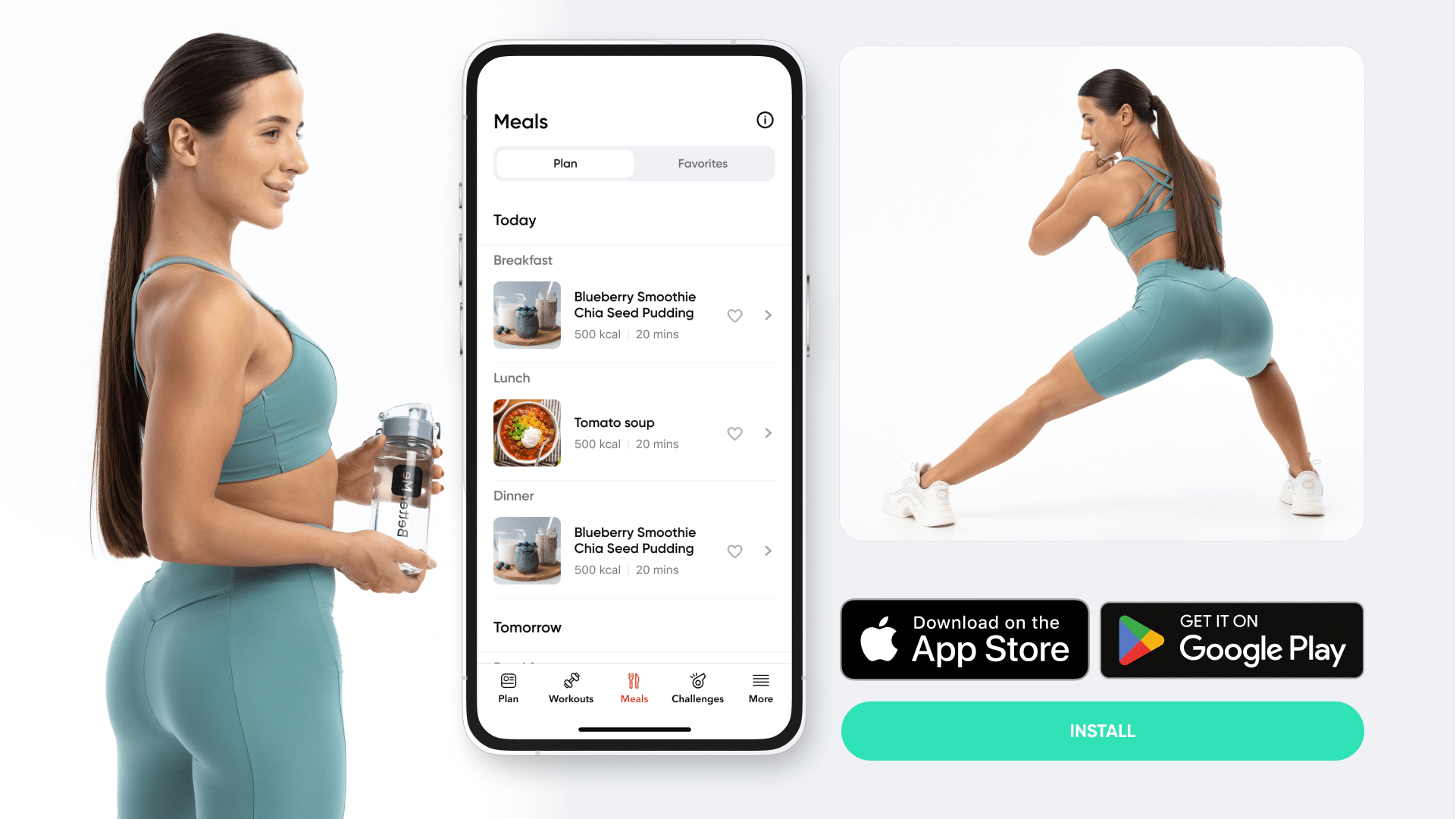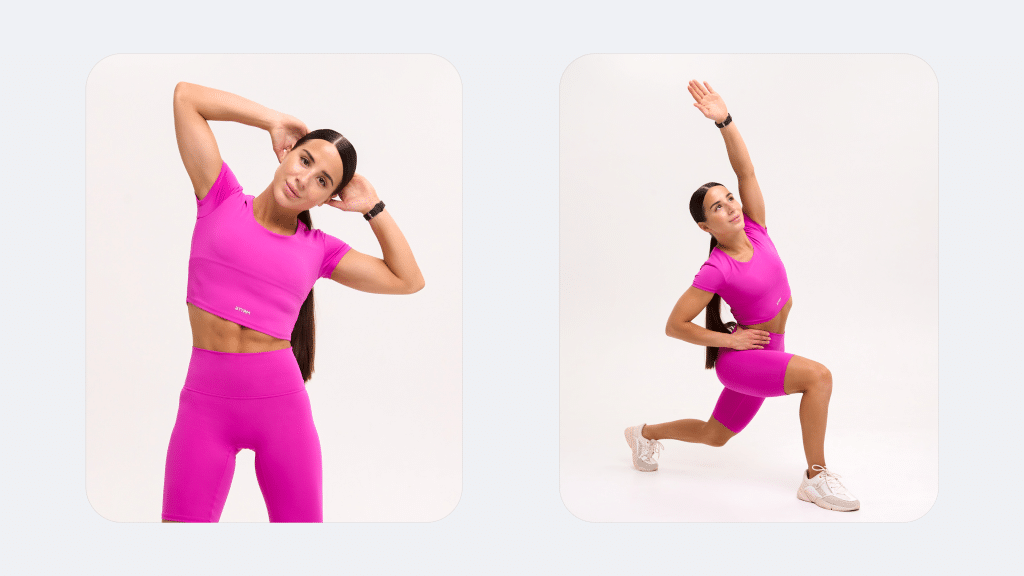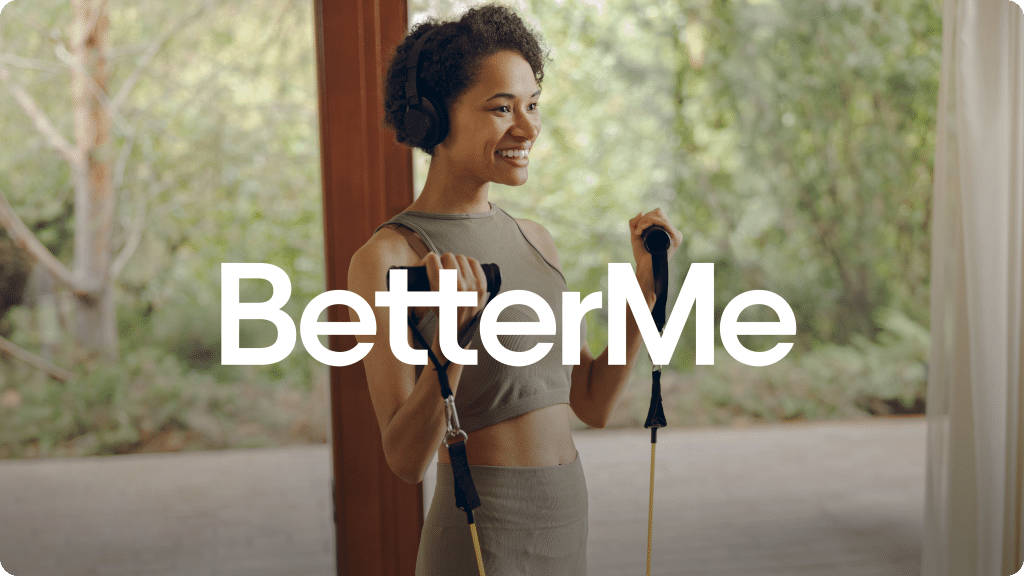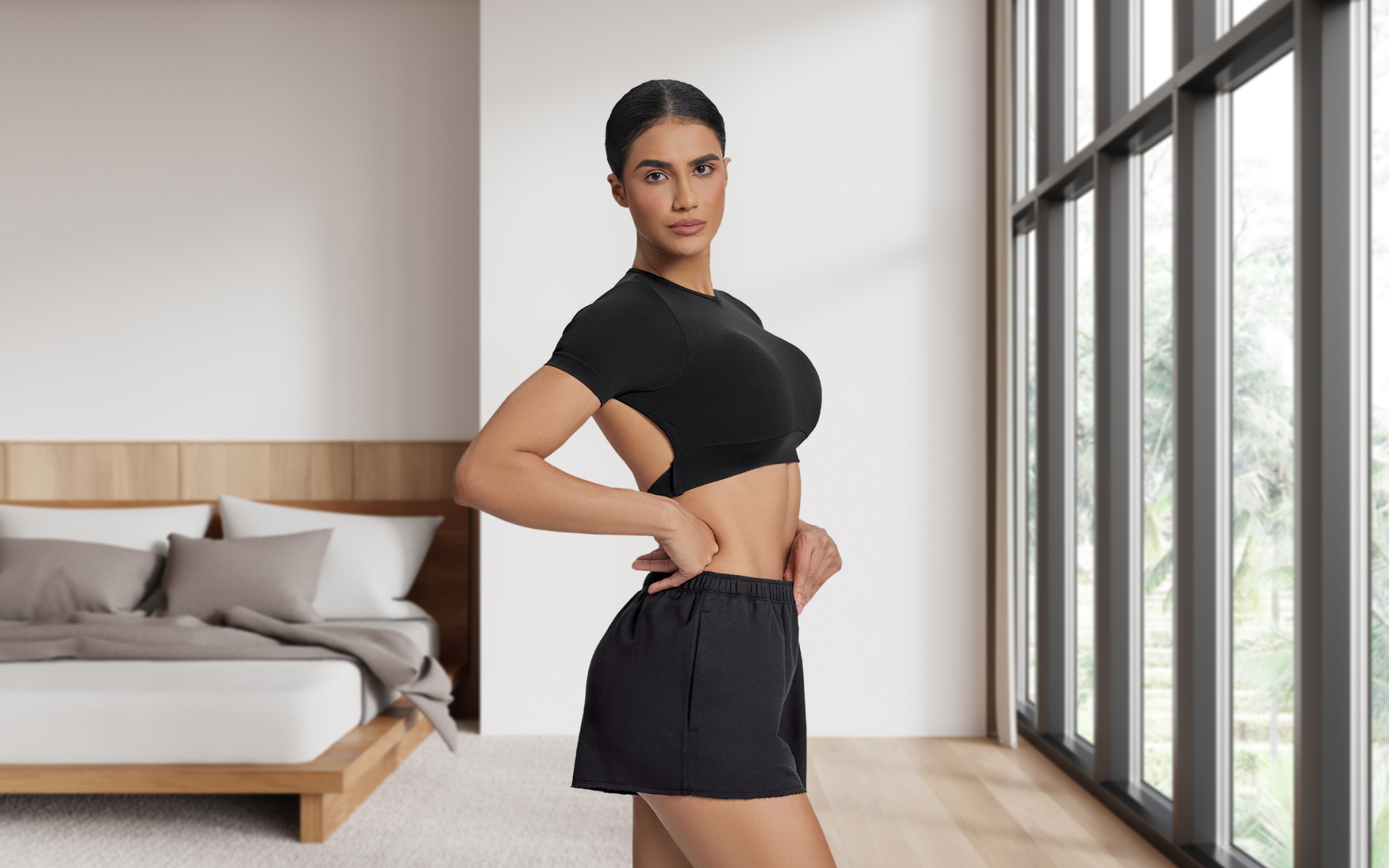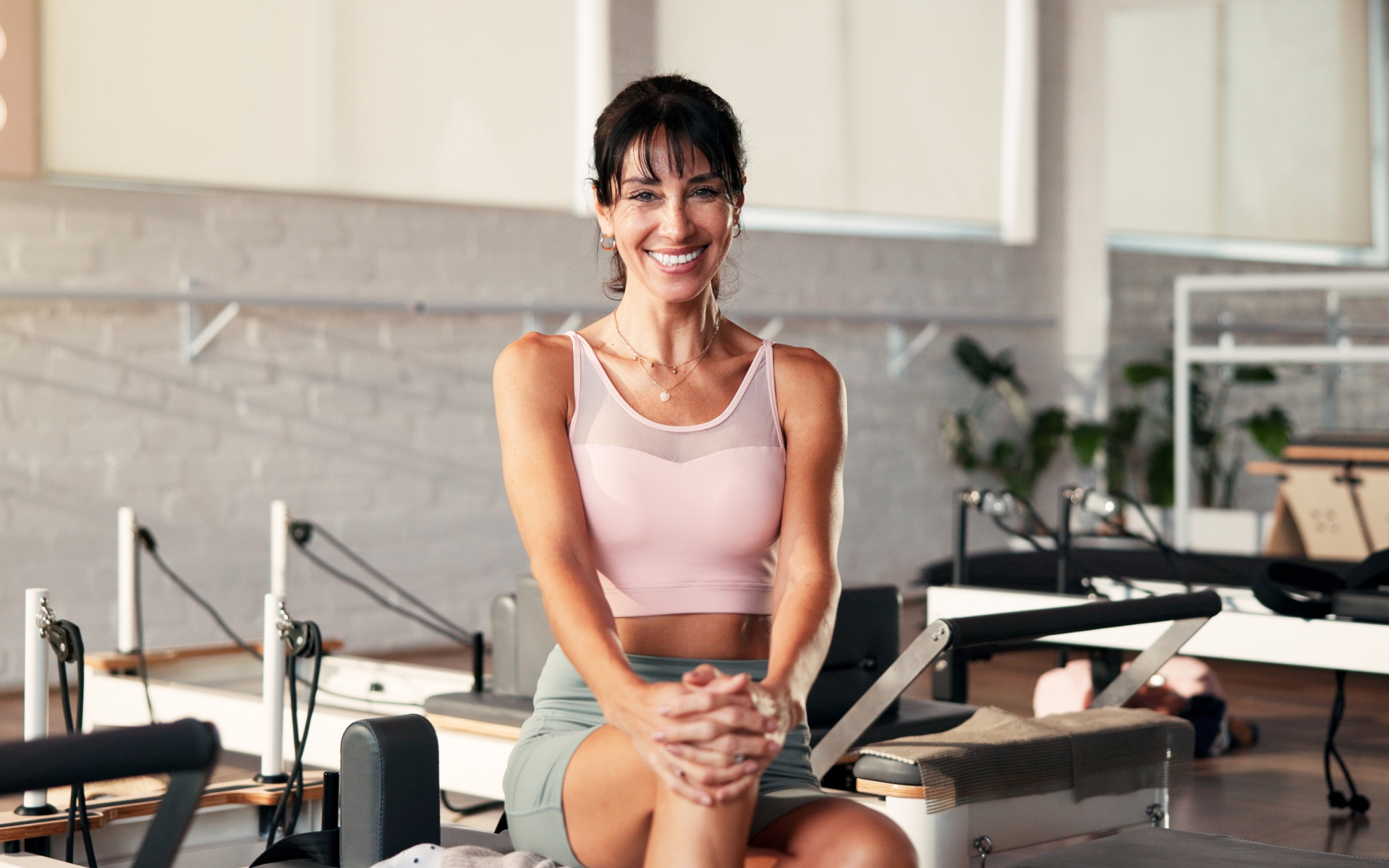Saddlebag fat can be like belly fat to men – extremely difficult and quite frustrating to get rid of. How to lose saddlebags is an issue many women who want more shapely hips and thighs are bothered about. Read on to find out how to lose saddlebag fat.
What are saddlebags?
These are areas of fat along the hip and outer, upper thighs that give many women a pear shape. They get their names from horse saddlebags, as many people tend to compare these pockets of fat to the bags that hang off a horse’s saddle.
What causes saddlebag fat?
There is no one thing that causes saddlebag fat. Some of the known causes include:
Puberty: Saddlebag fat is more common in women than it is in men, and this is mostly due to puberty. When girls reach puberty, they tend to accumulate fat in their breasts, thighs, butts, and hips. During this development time, some extra fat can settle in the outer thighs and, over time, it gets bigger and more pronounced (8).
Pregnancy: While the question of how to lose saddlebag fat may not have haunted you before, it can be a constant bother during pregnancy and after giving birth (11).
Changing estrogen levels: Estrogen is a big culprit in how and where women store their fat (11). Changes in its levels cause women to gain fat in their abdomen, hips, and thighs, giving them love handles and saddlebags.
Genetics: Sadly, genes could be the reason why you have saddlebags. If the women in your family all have fat on their thighs, then the chances are high that you’ll also be prone to storing fat there.
If you struggle to even flirt with the idea of giving up your favorite foods or working out till your legs give way – BetterMe app is here to breathe a fresh perspective into the way you view the weight loss process! Check out the app and experience the fun side of fitness and dieting with BetterMe!
Tips on how to lose saddlebags fast
Saddlebags, particularly if they’re genetic, can be extremely difficult to get rid of, but there are some things you can do to minimize them.
Watch what you eat
Adjusting your diet to get rid of saddlebags could be the answer you have been looking for. How does diet apply?
- Extra calories equal extra fat: Saddlebags are basically fat stored in an undesirable place. When you eat more than your body requires, the extra calories get turned into fat. This fat could be stored on your arms, abdomen, and love handles or saddlebags. For an effective “how to lose saddlebags plan”, try eating on a calorie deficit, as this may help minimize your thigh fat.
- The types of food you consume: High-sugar, high-fat, and high-carbohydrate foods are all detrimental to your overall health and can make saddlebags bigger due to overconsumption (1). If you notice that you eat a lot of such foods, adjusting your diet to get rid of saddlebags will be highly effective.
Next time you go grocery shopping, add more leafy greens such as kale, spinach, lettuce, and collard greens to your cart. Eat more fruits to replace candy and sweets. Nuts and seeds are also an excellent source of healthy fats and protein. Consume more fatty fish, such as salmon, tuna, and mackerel, as this is low in calories and packed with omega 3 fatty acids (3).
Remember to also eat carbs but replace refined carbs such as white bread, pizza, and pasta with more nutritious options such as starchy vegetables, quinoa, beans, legumes, popcorn, oatmeal, and brown rice. (3)
Work out more
The best way to lose body fat (saddlebags included) is through exercise. Increase the amount of cardio you do, and you can significantly minimize your outer thigh fat. Some examples of great cardio workouts include swimming, running, jumping rope, walking, cycling, and hiking (9).
10 of the best workouts for saddlebags
If just doing cardio is not enough for you, here are some fantastic “how to lose saddlebags” workouts. Before you undertake any of these exercises, talk to your doctor to get the go-ahead.
While these workouts will exercise your lower body, remember that spot reduction exercises don’t exist. These examples should be added to your daily workout routine that should include full-body workouts, cardio, and strength training.
Squats
These are the holy grail of all workouts. Squats are easy to do and when they’re done right, they can help burn calories and build lean muscle mass in the glutes, quads, and hamstrings.
- Start by standing with your feet shoulder-width apart, resting your arms straight down at your sides.
- Bracing your core and keeping your chest high, start to push your hips back, bending your knees as if you’re going to sit down.
- Ensure that your knees don’t cave in and when your thighs are parallel to the floor, pause for 2 – 3 seconds.
- Push up through your whole foot with the majority of your weight focused in your heels to the starting position.
- Do this up to 12 times for one set.
- Try to aim for 3 sets a day, but remember to pace yourself.
Reverse Hyper
- Lie face down on a sturdy bench or bed. Your hip bones should be on the bench while your legs hang off and can move freely.
- Anchor onto the bench with your hands and arms to keep yourself from falling off.
- Brace your core muscles, contract your butt, and lift both legs until they’re straight and parallel to the floor. Keep your head and neck in alignment, resting it on the bench if necessary.
- Hold your legs in place, parallel to the floor
- Return to the start position and repeat.
Squat Walks
These are also known as banded squat walks or lateral band walks. As the name suggests, you’ll need a resistance band for this exercise.
- Place the resistance band just above each ankle.
- Position your feet shoulder-width apart. The band should be pulled tight, but not stretched.
- Bend your knees slightly and move into a half-squat position.
- Keep your feet in line with your shoulders and face forward with your body weight evenly distributed over both feet.
- Maintaining the half-squat position, take a step sideways with one leg.
- Move the other leg in and sideways while keeping your hips level during the movement.
- Do this 10 to 15 times before switching your weight to the other leg and repeating the movements.
For proper posture, make sure your spine is in a neutral position and not arched.
Clamshells
- Start by lying on your right side with your knees bent at a 45-degree angle.
- The left leg should be stacked on top of the right leg, and your knees and ankles should be aligned.
- Keeping your core engaged and ankles together, slowly open the left knee to the sky, pause for 2 to 3 seconds, and return to the starting position.
- Make sure to engage your glutes and keep your torso straight.
- Do this 10 to 12 times on one side before switching sides and repeating the exercise.
If you want more of a challenge, wrap a resistance band around your legs slightly above your knees. This will make you use more muscle power to do this workout.
Read more: The Ice Hack to Lose Weight: Is There Science to Support the Claims?
Side Lying Leg Lifts
- Lie on your left side on a gym mat and support your head with your left hand.
- Stretch your legs out with the right leg stacked on top of the left.
- Lift your right leg up and then lower it back down toward the floor, but don’t let it touch the floor. Keep your torso still and pull your abs in to support your back.
- Repeat this 10 times and then switch to the other side.
Fire Hydrants
- Start by getting on all fours on an exercise or yoga mat. Your wrists should be directly under your shoulders and your hips should be over your knees.
- Keeping your knee bent, raise your right leg out to the side until your thigh is parallel to the floor. Stop once your thigh gets to hip level and make sure to keep your pelvis stable.
- Hold this position for 2 seconds before slowly lowering your leg back to the starting position.
- Do this up to 10 times on your right side before switching to the left leg.
Single Leg Glute Bridge
- Lie on your back with your right knee bent and right foot flat on the floor. Your left leg should be flat on the floor.
- Raise your left leg so it’s in line with your right thigh.
- Once in this position, push your hips up, keeping your left leg elevated.
- Pause for two to three seconds and then slowly lower yourself and return to the starting position.
- Repeat this movement 10 times before switching legs.
Remember to keep your core engaged throughout the exercise.
Side Lunge
- Stand tall with your feet together.
- Take a large step out with your right foot. Keeping your left leg straight, sit into your right leg like a single-leg squat by sitting your hips back and bending at the knee.
- Go as low as you can, then return to standing position and bring your feet back together.
- Alternate sides until you’ve done 16 reps (8 per leg).
Walking Lunge
- Stand with your feet together.
- Take one big step forward with your right foot and lower yourself down until your front knee reaches a 90-degree angle and your back knee is within several inches of the floor.
- Shift your weight onto your front right foot, power up to standing, and bring your left foot in line with your right foot.
- Repeat this movement alternating sides for 16 reps (8 per leg).
Band Deadlifts
- Grab a resistance band and place the middle of it underneath your midfoot.
- Grab the handles of the band. While keeping your back straight, bend at the hips with a slight bend in the knee until your upper torso is almost parallel to the floor.
- Thrust your hips forward to stand up.
Repeat the movement for 10 reps.
How to get rid of love handles and saddlebags
Struggling to lose love handles and saddlebags can be a frustrating experience. Both subcutaneous fat regions are extremely difficult to get rid of, but with dedication, you can lose them. While the above workouts show you how to lose saddlebags fast, the following exercises will target both your love handles and saddlebags.
Burpees
Not only should burpees be at the top of your list for getting rid of love handles and saddlebags, they’re great for anyone who is trying to lose weight, no matter the body part. They may be a gruelling exercise, but they’re also incredibly effective for calorie burn.
- Start in a standing position with your feet shoulder-width apart.
- Squat down with your back straight and place your hands on the floor between your feet.
- With your weight on your hands, kick your feet back, so you’re on your hands and toes in a push-up position.
- Do one push-up before jumping your feet forward to their starting position.
- Push strongly from this position and jump, reaching your arms above your head.
Beginners should omit the push-up (or do a knee push-up) if this variation is too difficult for them.
Mountain Climbers
Not only are these a fantastic cardio exercise, they’re also among the best exercises to increase your heart rate and burn calories.
- Start in a traditional plank position with your shoulders directly over your hands and wrists.
- Make sure to keep your back flat and your butt down, maintaining a neutral spine. Don’t curve your back or sag your hips.
- Engage your core and lift up your right knee, bringing it toward your elbow (or as far as you can). Return your right knee back to the starting position as you simultaneously drive your left knee up toward your left elbow.
- Return to the starting position and continue switching legs as you pick up the pace. It should feel as if you’re running in place in a plank position.
Kettlebell Swings
Similar to mountain climbers, kettlebell swings are great cardio exercise. They exercise the muscles in your core, glutes, hamstrings, and lower back.
- Stand with feet slightly wider than shoulder-width apart as you hold a kettlebell in front of your body with both hands, arms straight.
- With a slight bend in your knees and a flat back, hinge at your hips and swing the kettlebell back through your legs.
- Use this momentum and thrust your hips forward to swing the kettlebell out in front of your body, no higher than shoulder height. Engage your glutes and core as you stand up straight.
- When the kettlebell hits its maximum height, your knees should be straight, and your glutes contracted in a full hip extension.
- Allow the kettlebell to swing back down through your legs and repeat the movement.
Whether you’re a workout beast or just a beginner making your first foray into the world of fitness and dieting – BetterMe has a lot to offer to both newbies and experts! Install the app and experience the versatility first-hand!
How to lose saddlebags without exercising
Working out and eating right should always be the first thing you consider when trying to lose fat. However, if you’ve been working out and making healthy food choices but can’t get rid of saddlebags, here are some alternative measures you can consider for fixing loose saddlebags.
- SculpSure: Also known as WarmSculpting, this is a non-invasive body contouring treatment that promises to target and reduce fat cells safely in just 25 minutes. The procedure is a laser treatment that destroys fat cells by heating them up and breaking them down. WarmSculpting may help you lose up to 11 percent of your saddlebag fat in just two treatments (10).
- Liposuction: Unlike the above procedure, liposuction is quite invasive, but it can help get rid of a lot of the fat from your thighs and love handles. If you choose this option, you’ll have to be put under and a surgeon will use a large narrow suction tool to carefully siphon up to 11 pounds of excess fat from your body. Recovery time can be up to a month (6).
- Cool Sculpting: As with SculpSure, this is a non-invasive procedure, but it uses freezing temperatures to kill your fat cells. The process takes approximately 30 minutes and can help get rid of up to 30 percent of fat in the chosen area (2).
Please note that while these cosmetic procedures seem as if they’re the best options because they provide quick results, they’re also quite expensive. Depending on your procedure of choice, you may have to part with anything from $1,000 to $3,500 (or even more).
Also, none of these procedures guarantee that the fat will never accumulate again. Without proper diet and exercise, your saddlebags will get bigger and you’ll soon be back to square one looking at options on how to lose saddlebags.
Read more: Boxing Calories Burned: Lose Weight by Punching
FAQs
Do saddlebags ever go away?
Yes, saddlebags can disappear with a proper diet and exercise. However, it may take longer for some people depending on their body type and genetics. Below are some science-backed strategies for fat loss that you can use to get rid of saddlebags.
- Calorie Deficit: In order to lose weight, you need to create a caloric deficit by burning more calories than you consume. This can be achieved through a combination of diet and exercise. Aim for a calorie deficit of 500-1,000 calories per day to lose about 1-2 pounds per week (7).
- Cardiovascular Exercise: To target the saddlebags specifically, include cardiovascular exercises such as walking, running, cycling, or swimming in your workout routine. These activities will help burn extra calories and fat from your entire body, including the saddlebag area (9).
- Strength Training: Building muscle through strength training is also essential for losing saddlebags. It helps increase your metabolism and burns more calories, even while at rest (5). Focus on exercises that target the outer thighs and hips, such as squats, lunges, and side leg lifts.
- Healthy Diet: Eating a healthy and balanced diet is essential for fat loss. Include lean proteins, fruits, vegetables, whole grains, and healthy fats in your meals. Avoid processed foods, sugary drinks, and excessive alcohol consumption (3).
Check out our collection of Upper Thigh Exercises for specific exercises that target saddlebags.
Are saddlebags fat or muscle?
Saddlebags are primarily fat deposits and their appearance is more prominent in individuals with a higher body fat percentage. Having strong muscles in the outer thighs and hips can help reduce the appearance of saddlebags, but they’re not entirely made up of muscle.
Because of this, losing saddlebags requires a combination of both fat loss and muscle-building strategies.
How can I slim my outer thighs?
Slimming your outer thighs is a great way to reduce the appearance of saddlebags. The main way to do this is to reduce overall body fat, which you can achieve by following these strategies:
- Dietary Changes: Adopting a healthy and balanced diet is essential for reducing body fat. Aim to eat in a calorie deficit, limit your intake of processed and fatty foods, and increase your consumption of whole, nutrient-dense foods (3).
- Resistance Training: Incorporate strength training exercises that target the outer thighs such as side leg lifts, inner thigh squeezes, and clamshells into your workout routine. These exercises will help tone and strengthen the muscles in this area (9).
- Cardiovascular Exercise: As previously mentioned, including cardiovascular exercises in your workout routine is essential for fat loss. Aim for at least 150 minutes of moderate or 75 minutes of vigorous activity per week (9).
- Increase Water Intake: Drinking plenty of water helps flush out toxins from your body and aids in weight loss (4).
- Try Yoga or Pilates: These exercises help strengthen and tone muscles, including those in the outer thighs and hips.
- Be Patient: Losing saddlebags takes time and patience. Don’t be discouraged if you don’t see immediate results. Stick to a healthy routine and the changes will come gradually.
In our previous post on How to Get Rid of Inner Thigh Fat, we highlight some additional tips you can incorporate into your routine to help slim down your outer thighs. These tips include massage, using an exercise ball, and incorporating plyometrics.
Does skipping reduce saddlebags?
Skipping intensely and consistently can reduce your body fat percentage, which can help reduce the appearance of saddlebags. However, spot reduction is not possible through any exercise, including skipping. This means you can’t target fat loss from a specific area solely by doing exercises that work on that area.
A good overall workout routine that includes cardio and strength training combined with a healthy diet is essential for reducing saddlebags. Skipping can be a fun and effective addition to your workout routine, but it shouldn’t be solely relied upon for spot reduction.
The Bottom Line
Losing saddlebags may be quite difficult, but it can be done. Working out, eating healthy meals, and staying within your calorie intake limit will go a long way in helping get rid of this unwanted fat. That being said, it’s also important to note that this fat may never go away completely, particularly if it’s woven into your DNA.
The best thing is to love yourself and realize that all women don’t look alike, nor do they have the same body types. If you choose to attempt any of the above “how to lose saddlebags fat fast” exercises or change your diet, make sure you speak to a doctor or dietician first.
DISCLAIMER:
This article is intended for general informational purposes only and does not serve to address individual circumstances. It is not a substitute for professional advice or help and should not be relied on for making any kind of decision-making. Any action taken as a direct or indirect result of the information in this article is entirely at your own risk and is your sole responsibility.
BetterMe, its content staff, and its medical advisors accept no responsibility for inaccuracies, errors, misstatements, inconsistencies, or omissions and specifically disclaim any liability, loss or risk, personal, professional or otherwise, which may be incurred as a consequence, directly or indirectly, of the use and/or application of any content.
You should always seek the advice of your physician or other qualified health provider with any questions you may have regarding a medical condition or your specific situation. Never disregard professional medical advice or delay seeking it because of BetterMe content. If you suspect or think you may have a medical emergency, call your doctor.
SOURCES:
- A High-Sugar Diet Consumption, Metabolism and Health Impacts with a Focus on the Development of Substance Use Disorder: A Narrative Review (2022,nih.gov)
- Cryolipolysis for Fat Reduction and Body Contouring: Safety and Efficacy of Current Treatment Paradigms (2015,nih.gov)
- Healthy diet (n,d,who.int)
- Increased Hydration Can Be Associated with Weight Loss (2016,nih.gov)
- Increasing muscle mass to improve metabolism (2013,nih.gov)
- Liposuction (2023,medlineplus.gov)
- Losing Weight (2023,cdc.gov)
- Obesity and the pubertal transition in girls and boys (2011,nih.gov)
- Physical Activity for a Healthy Weight (cdc.gov)
- SculpSure: A new option in nonsurgical fat reduction (2017,plasticsurgery.org)
- The influence of sex hormones on obesity across the female life span (1998,nih.gov)
